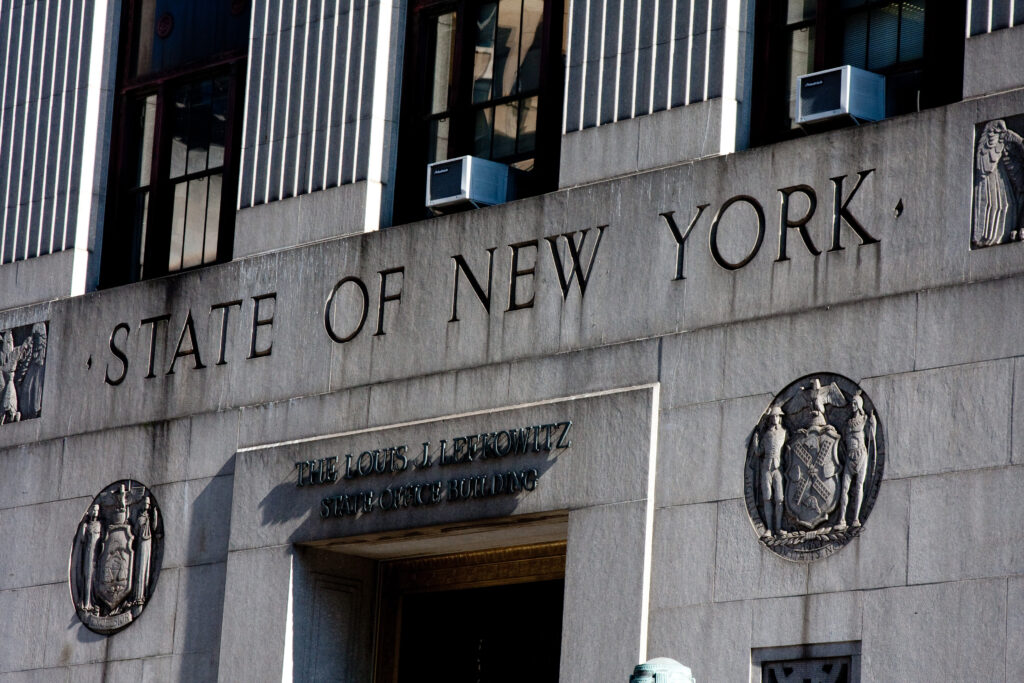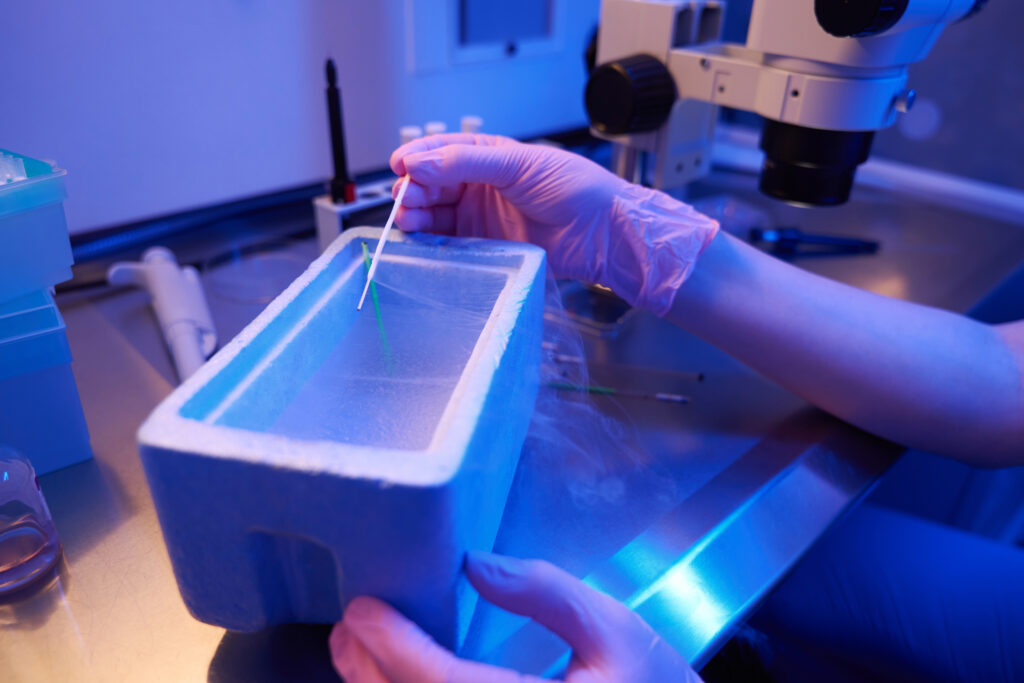New York’s CPSA Amendment Ushers in a New Era for Surrogacy and Family Building
In 2021, New York took a monumental step in the rights of New Yorkers to build their families passing the Child-Parent Security Act (CPSA). This law legalized compensated gestational surrogacy, bringing the state into alignment with modern medical practices and the diverse needs of intended parents. For years prior, hopeful parents had to travel out of state to grow their families through surrogacy. The CPSA changed that, establishing New York as a safe and supportive space for intended parents, surrogates, and fertility professionals.
Lawmaking, like family-building, is a process that is evolving. In May 2025, New York amended the CPSA with legislation designed to address growing concerns, modern family realities, and legal ambiguities that emerged in the wake of the original statute. The new amendment, known as S4555A, marks a significant development in New York’s approach to assisted reproduction and parentage. It strengthens legal certainty for intended parents, recognizes the complexity of today’s family structures, and provides clarity for attorneys and courts alike.
In this week’s blog, we will be breaking down what exactly this amendment means for the CPSA: What does it change? How does it affect Intended Parents, surrogates, and fertility law professionals?

The CPSA: A Quick Recap
Let’s start with a quick recap on the Child Parent Security Act (CPSA). As we have discussed at length on our CPSA page, the CPSA was enacted in February 2021 and was a huge moment in New York fertility law. Before this, compensated surrogacy was actually prohibited in New York. This forced intended parents, such as LGBT couples and heterosexual couples struggling with infertility, to seek legal and medical services out of the state.
The 2021 law finally reversed this ban, legalizing compensated gestational surrogacy and laying out a comprehensive framework to ensure the rights and wellbeing of everyone involved in the process. It included requirements like separate legal counsel for surrogates and intended parents, mandatory insurance coverage for the surrogate, detailed contracts (known as “Gestational Carrier Agreements”), and most notably, included the “Surrogate’s Bill of Rights”. The CPSA also provided for the issuance of pre-birth parentage orders, giving intended parents legal recognition of their parenthood before the baby is born.
While this law was a huge leap forward in New Yorkers’ access to modern methods of growing their families, it still left some ambiguities and gaps that needed to be addressed. That’s where the 2025 amendment comes in.
What the 2025 CPSA Amendment Changes
In May 2025, the New York legislature introduced and passed S4555A, amending the CPSA and several related laws. The amendment tackles critical areas that had caused friction or confusion over the past few years and ensures the law keeps up with both technological advances and evolving family structures.
First, the amendment traduces a formal process for legal parental rights being established through a confirmatory adoption. While pre-birth parentage orders are powerful and useful tools to accomplishing legal parenthood over children born through surrogacy, they’re not always recognized out of state or by federal agencies. The new confirmatory adoption process allows intended parents to petition the court to reaffirm their parentage after the child is born. This now creates a fail-safe approach to legal security of the intended parents’ legal parentage. This is especially valuable when parents travel, move to a new state, or encounter bureaucratic institutions, such as school systems, doctor’s offices, or government agencies.
Second, and maybe most groundbreaking, is that this amendment recognizes the legal possibility of more than two parents. This is a monumental change in parentage law. For decades, the law has essentially defaulted to a two-parent model, even when the lived realities were more complex. Now, families formed by multiple co-parents, whether in polyamorous relationships, donor-conceived arrangements with ongoing involvement, or other forms of blended families, can petition to have more than two legal parents recognized. This allows for multiple parents to share in custody, inheritance, decision-making, and parental responsibilities, all with court-affirmed legal status.
This amendment also updated the outdated legal terms in several New York statutes. It removes references to “legitimacy”, paternity presumptions based solely on marriage, and another antiquated concepts that don’t align with how families can be created today. In doing so, it brings New York law into better alignment with the reality of modern family building.
Why This Matters for Intended Parents
For intended parents, this amendment isn’t just good news, it creates peace of mind. The confirmatory adoption provision means that even if you’ve already received a pre-birth order, you can now go a step further to ensure your parental rights are fully recognized across the board. For LGBTQ+ parents especially, confirmatory adoption can offer extra legal protection that’s recognized nationwide. In an era where rights can vary dramatically from one state to the next, this kind of security to New Yorkers is invaluable.
Additionally, the ability to have more than two legal parents also means that no one has to be left out of the family’s legal picture. In the past, families often had to make hard choices about which parents would be listed on a birth certificate or recognized in court. Now, the law in New York is granting room for all the people who love and raise a child to be seen, and affirmed, as legal parents.
How The Amendment Affects Surrogacy and Fertility Law Practice
For fertility and surrogacy attorneys, this amendment marks an important shift in strategy and procedure for fertility law and surrogacy law matters. Clients will need comprehensive legal counsel not only before and during the surrogacy process, but also after birth. Attorneys must now advise on when and why to pursue confirmatory adoption, help clients understand what multi-parent recognition means for their family structure, and ensure that their contracts and court filing reflect the new options and requirements under the amended law.
Contracts will now need to include language addressing confirmatory adoption timelines, contingency planning for non-traditional parentage scenarios, and proactive coordination with courts and administrative agencies. Attorneys must also become adept at guiding clients through the updated requirements for the Gestational Carrier agreements, which can now involve more terms than prior to this amendment.
This amendment underscores the importance of early legal involvement. Because CPSA-compliant surrogacy requires detailed contracts and careful planning, attorneys must be involved from the start – long before embryo transfer or pregnancy occurs. This is not a process to navigate without expert legal guidance: If you are considering expanding your family through surrogacy, speak with one of our experienced New York Surrogacy attorneys today.
Practical Changes for the Legal Process
Under the amended law, the journey from embryo transfer to birth to legal finality becomes more nuanced. Pre-birth orders will still play a key role, providing the basis for intended parentage. But now, many clients will also opt for confirmatory adoption after the baby is born, especially fi they plan to travel or want federal-level documentation (like Social Security cards or passports) to reflect their legal parentage.
Multi-parent petitions will also need to be carefully structured. Courts will look for evidence that multiple individuals have established a parental relationship with the child and are acting in the child’s best interest. The legal standard is not relaxed now, but it is increasingly flexible, opening the door to families that previously had no legal recourse.
Attorneys must also coordinate with agencies like the Department of Health and county vital records offices to ensure that birth certificates reflect updated parentage orders and that there’s no delay in establishing legal identity for newborns.
The Bigger Picture: Recognizing Family in All of Its Forms
Perhaps the most powerful art of this amendment is the message behind it: New York is evolving with modern medicine and modern methods of building your family. Whether you’re a same-sex couple using an egg donor and gestational carrier, a polyamorous family of three co-parents, a single working professional who wants to have a child, or a heterosexual couple struggling with infertility, you’re included, protected, and seen under this amended law.
This is a clear step forward from outdated norms that tried to force families into narrow legal boxes. Instead, New York is embracing the diversity of modern families and acknowledging that love, intention, and responsibility are what make someone a parent, not sexuality and marital status.
Final Thoughts: A Turning Point for Family Formation
The 2025 amendment to New York’s Child-Parent Security At is more than a policy update, it’s a cultural shift. It signals that New York not only supports assisted reproduction and surrogacy, but is committed to making these paths to parenthood legally secure, emotionally affirming, and accessible to all kinds of families.
As surrogacy and fertility law continues to evolve, attorneys, clinics, and intended parents alike must stay informed, proactive and compassionate. This amendment challenges us to think more about what a family means, and how we can use the law to support it.
If you’re considering surrogacy, donor conception, or any form of assisted reproduction in New York, now is the time to speak with a New York fertility law attorney who understands the law inside and out. With this amendment in place, there are more tools than ever to help you build your family. At Douglas Fertility & Surrogacy Law Group, PLLC, we help you envision your family, on your terms. Contact us today for a 45-minute, custom tailored consultation about your family building needs and how we can use the law to make your dreams a reality. Fill out our web-form to have us reach out to you, or give us a call at 212.378.3840.
Check Out Our Recent Blogs:
The Ethics of Embryo Donations

Embryo donation can be a complex and emotional topic, with ethical implications. Check out our blog where we discuss this here.
Financially and Legally Preparing For A Fertility Journey

Fertility journeys entail important financial and legal considerations. This week’s blog discusses important things to keep in mind when preparing for your journey. Check out this week’s blog here.
Key Clauses to Include in A Surrogacy Agreement

Surrogacy agreements are one of the most important fertility law documents. This blog covers some of the key considerations to include in yours. Check out our blog here.

Embryo donation can be a complex and emotional topic, with ethical implications. Check out our blog where we discuss this here.

Fertility journeys entail important financial and legal considerations. This week’s blog discusses important things to keep in mind when preparing for your journey. Check out this week’s blog here.

Surrogacy agreements are one of the most important fertility law documents. This blog covers some of the key considerations to include in yours. Check out our blog here.
